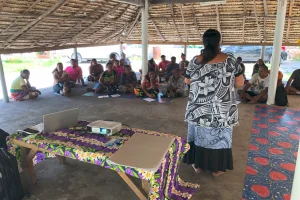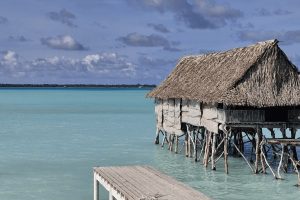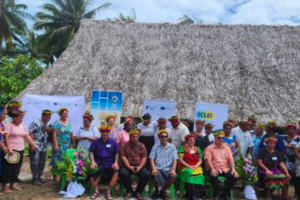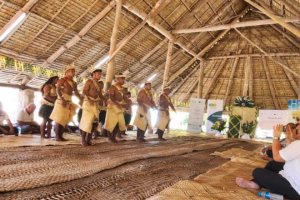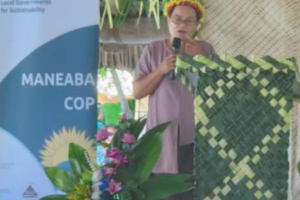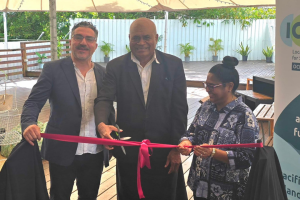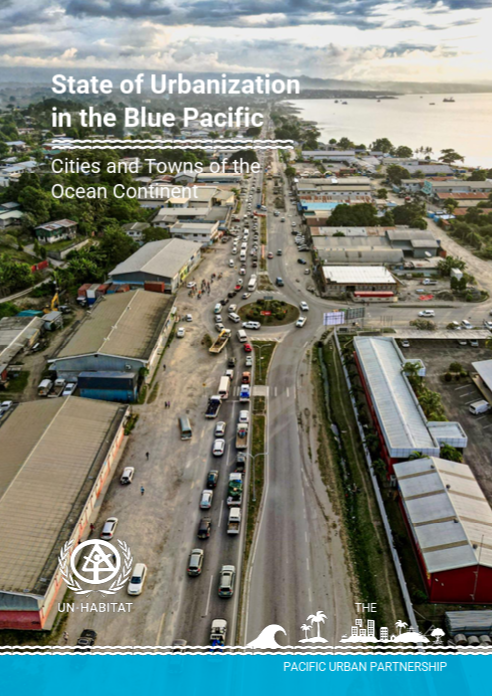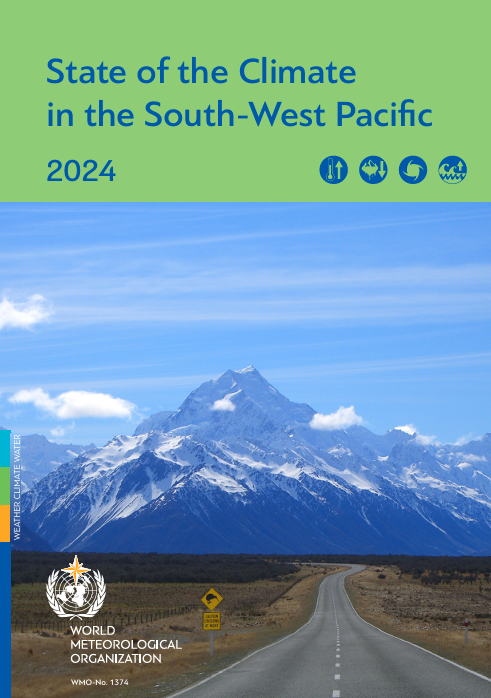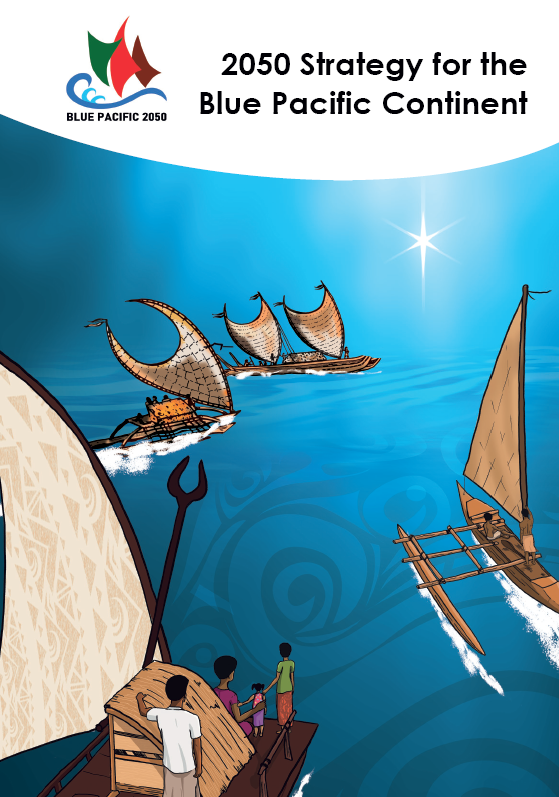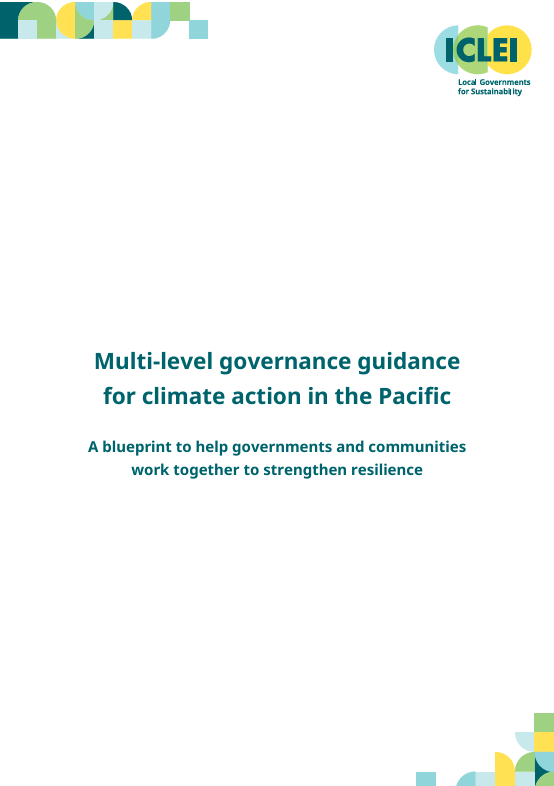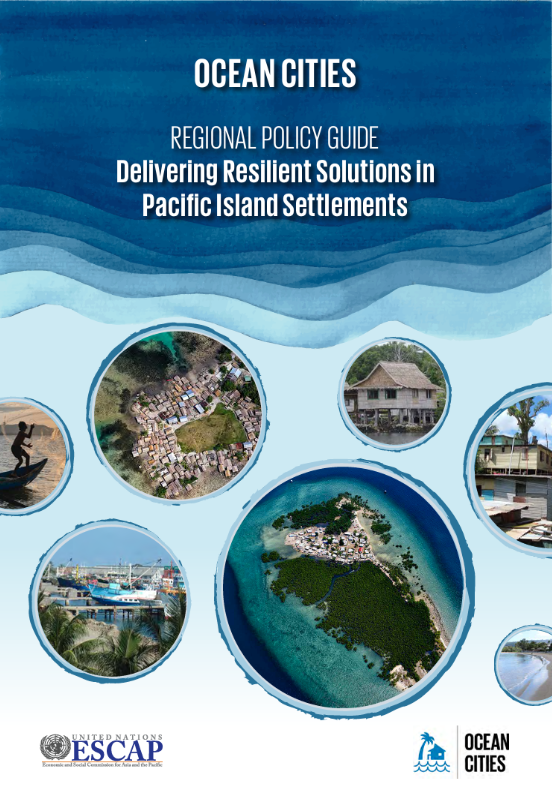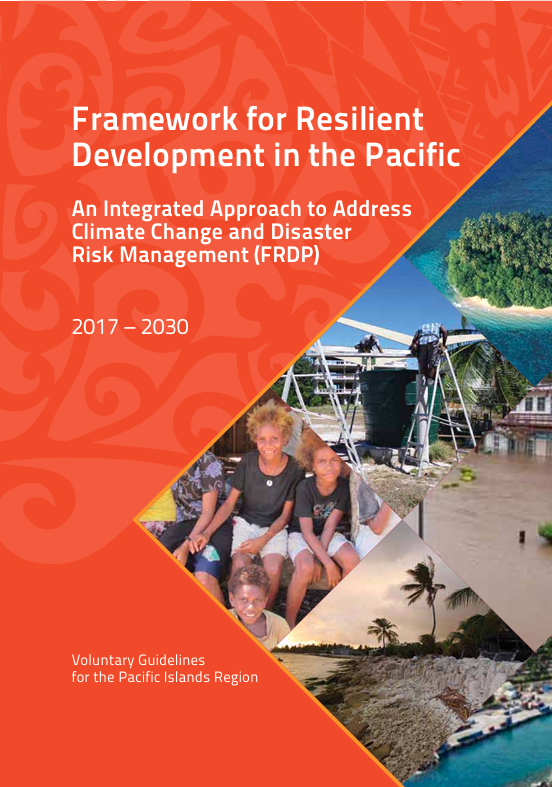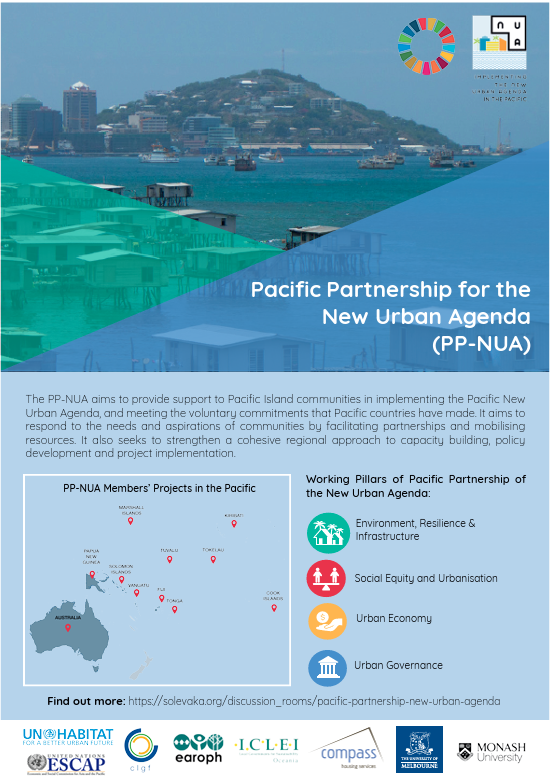Pacific Cities & Islands
In 2025, ICLEI Oceania significantly expanded its reach by establishing the Pacific Office in Suva, Fiji. This new office is pivotal in supporting cities and rapidly urbanising towns across the 29 nations that comprise the vast Pacific region, directly addressing the unique sustainability and climate challenges faced there.
ICLEI has been in the region delivering projects since 2015 and recent projects across Fiji, Solomon Islands and Kiribati have supported communities in resilience, climate adaptation, policy development and building capability across food systems, waste management and governance
Extensive city, town and local government associations, as well as institutional, civil society and education partners, ensure ICLEI Oceania can deliver sustainability projects across all Pacific Island Countries.
ICLEI Pacific Islands Office
The ICLEI Pacific Islands Office, officially established in Suva, Fiji, serves as the dedicated regional hub for ICLEI in the region, solidifying the global network’s long-term commitment to sustainable urban development and climate resilience across Pacific Island nations. Operating as a satellite of ICLEI Oceania, the office is strategically positioned to deepen engagement with local communities and expand key sustainability initiatives currently underway in countries like Fiji, Kiribati, and the Solomon Islands. By focusing on enhancing climate adaptation strategies, promoting environmental stewardship, and leveraging unique programs like the Transformative Actions Program (TAP), the office is designed to foster multi-level governance and collaborative partnerships with local governments, NGOs, and regional bodies in the Pacific. This presence reinforces ICLEI’s vital role as the Local Governments and Municipal Authorities (LGMA) focal point in global climate discussions, ensuring Pacific nations have sustained support to accelerate sustainability efforts and achieve lasting resilience into the foreseeable future.
Blue-Green Development in Kiribati
The Blue-Green Development in Kiribati project, funded by the German Government through its International Climate Initiative (IKI), is a pioneering community-driven initiative designed to build long-term climate resilience and enhance food security for vulnerable urban populations across the small atoll islands of South Tarawa. Recognizing the immediate threats of rising sea levels, frequent flooding, and degraded soils, the project employs an integrated approach that merges traditional knowledge with innovative sustainable practices, such as above-ground cultivation, soil enrichment with biochar, and expanding local food production to reduce reliance on imports. A core feature is its integration with the local Maneaba governance structure, actively empowering women and elders within church-based communities to become dynamic leaders who drive grassroots adaptation. By successfully strengthening local self-sufficiency and demonstrating
Global Covenant of Mayors for Climate & Energy (GCoM)
With funding provided by the European Union, the Global Covenant of Mayors for Climate & Energy (GCoM) and ICLEI Oceania are actively supporting five towns and cities in the Pacific Islands as they confront the urgent challenges of climate change.
A dedicated team of local and global experts have worked with Labasa, Savusavu, Nadi, Honiara, and Tulagi to analyse their most pressing issues arising from rapid urban development and climate change impacts. Notably, despite their varying geographical locations and sizes, these communities share common struggles in dealing with extreme weather events, sea level rise, and coastal flooding, exacerbated by inadequate waste management systems. The cities have now adopted Climate Action Plans and are developing project pre-feasibilities to implement high priority climate actions.
